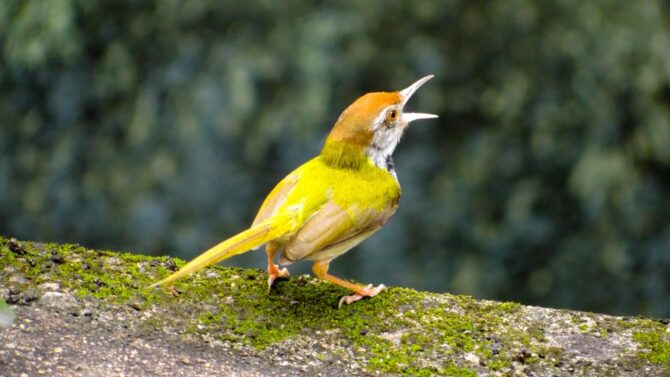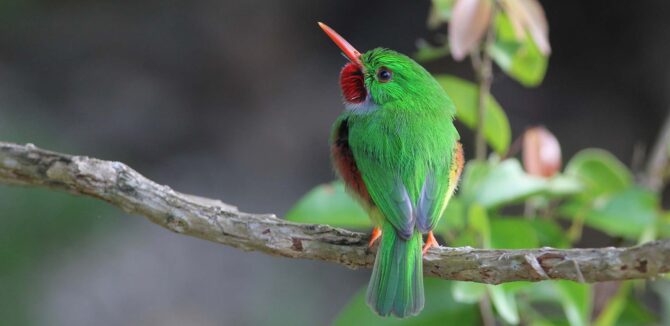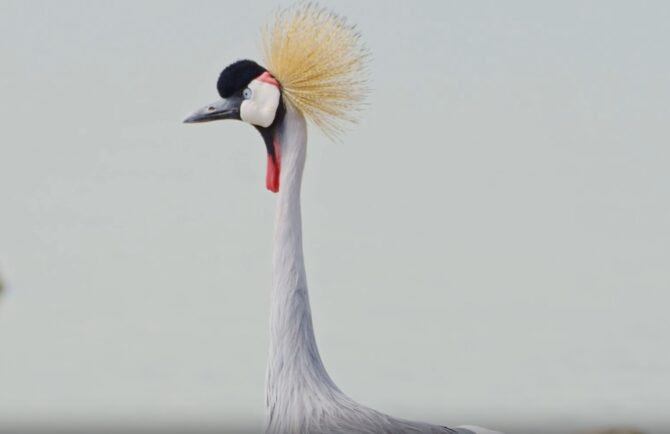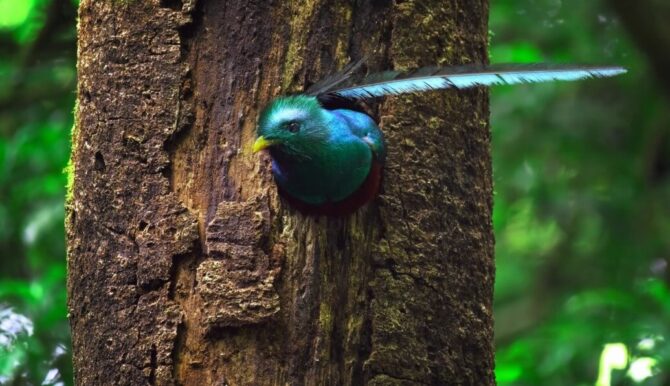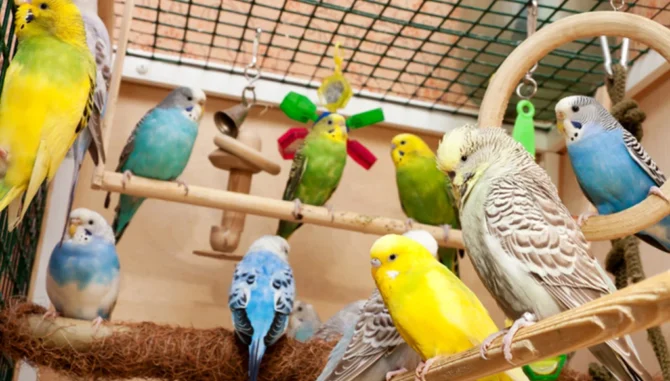You know it’s going to be a good day when you wake up to birds chirping, or at least that’s what romantic comedies tell us.
There’s some truth in their depictions, of course. The melodies of these creatures are enough to put anyone in a good mood, especially when accompanied by bright sunlight and a good night’s rest.
Because birds chirping sounds melodious and so natural, not everyone takes the time to think about why they do this.
But you surely must have, or you wouldn’t be reading this. So we ask the question, why do birds chirp in the morning?
Birds can chirp through any moment of the day, but during the dawn, it gets frequent.
There are many reasons they do this, including defining territories and finding a mate. Those melodies are not always random.
Read on to discover the eight reasons why birds sing dawn chorus.
Why Do Birds Chirp in the Morning?
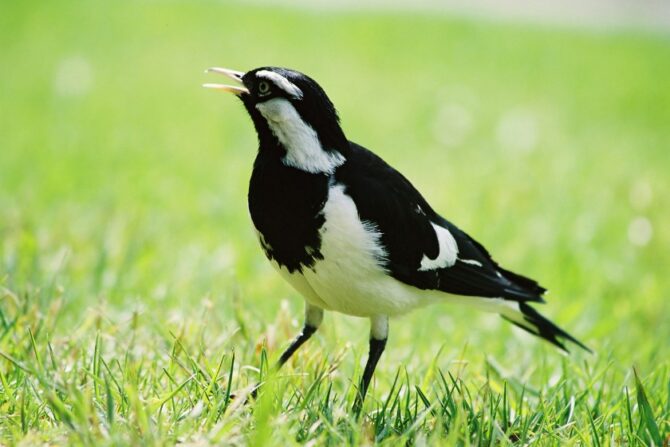
1. To define their territories
Birds can be territorial, just like many other animals. To announce that they have picked a particular spot, they sing to announce it with clear, repeated melodies.
This serves to deter any other interested bird from getting to where they are.
This especially happens during the breeding season when tension is high.
Aggression amongst birds is common when they want to mate. A strong bird chirp to essentially tell others to back off his territory and potential mate.
He might get a challenger if the other male birds think they can take him on.
Sometimes they engage in singing competitions to show off their strength. The weaker one eventually changes the song.
2. Finding a mate
Besides defining territories during the breeding season, male birds also sing to attract females.
Males with the best vocals are considered the most attractive, so chirping is a big deal to avians.
The singing serves two purposes. It attracts the female and also shows her that the male is capable of protecting her.
Singing for mating purposes often happens during spring, which is why bird chirping is often associated with this season.
So while you enjoy their singing in the morning, understand that some reproduction will be going on quite soon.
3. Hunger
One other reason birds sing is because they want breakfast! This is especially the case with diurnal birds that have slept through the night.
They often wake up in need of food and express that need through chirping.
They could be singing melodies as they get set to look for food, similar to how we hum our favorite songs as we start our morning routines.
Babies also use chirping to express their hunger to their parents. These little creatures are dependent on their parents to feed them, so they have to signal their needs.
4. The peace
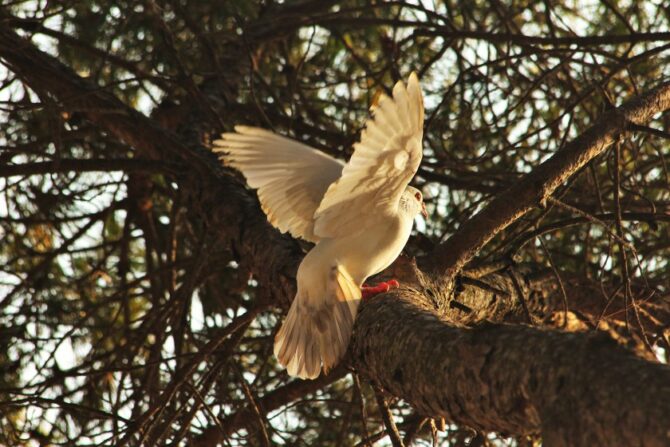
Birds living in urban areas are often put off by noise and pollution, which makes them stay out of sight.
They do not have these problems early in the morning. People are still getting up from bed, and there’s little noise, which gives them ample opportunities to vocalize as they wish before the noise begins.
This also explains why some diurnal birds may chirp even at night. Not given enough chance to sing during the day, they may sing at night.
Birds in rural areas have better opportunities to be vocal because of the quieter lifestyle, which is why you’re more likely to hear birds chirping in the countryside.
5. Getting food supply
This is tied to securing territories and hunger. Birds chirp to show hunger, to seek food, and to stop other birds from getting to their food supply.
As we mentioned above, birds are territorial. The stronger birds will usually ward off the weaker ones by singing. In these cases, you’d often hear a noisy chirp.
This happens even more if you have a bird feeder close to you. If you want to wake up to birds chirping, get a bird feeder. It attracts different birds.
6. Family protection
Remember what we said about males proving they’re good at protecting females?
The males often protect their families from predators and other birds from getting to their families.
They do this by chirping noisily to wade off threats. This protection starts at dawn, which explains the chirping.
Males are also the ones responsible for bringing food for the females and the younger ones.
This further explains why mating involves showing off strength using vocals.
7. Health
A good melody is not only a sign of strength, but it also shows good health on the part of the bird.
A close equivalent to this is well-toned muscles in men. The louder a bird is, the healthier it comes across. By contrast, a fragile-sounding bird is either ill or injured.
Singing is also a sign of having rested well the night before. The nighttime can be risky for birds as predators sometimes hunt sleeping creatures.
They might also be hungry at night, so waking up healthy is a feat worth singing about.
If it’s a male trying to impress a female, being healthy increases his chances.
8. Communication
Finally, birds chirp and sing for the overall purpose of communication.
Whether this means warding off danger, warning others of an impending predator, mating, and all, birds sing as a form of communication.
Also See: Why Do Birds Chirp At Night? 7 Reasons Nocturnal Birds Sing
Additional Information on Birds Chirping
- Some bird species are more likely to chirp in the morning, especially as they are diurnal and very vocal. Some examples are blackbirds, doves, robins, wood pigeons, wrens, warblers, common pheasants, and chaffinches.
- The technical term for birds singing is called a dawn chorus, and this often happens 30 to 90 minutes before sunrise.
- There’s an International Dawn Chorus Day that occurs every first Sunday in May.1 On this day, people intentionally wake up to listen to birds singing. It first began in 1980 and since then has been celebrated in 80 countries.
- The dawn chorus has a spiritual significance in different belief systems. It often stands for joy, prosperity, freedom, and fortune.
Wrap Up
Birds have a lot going for them, which explains why bird-watching is a serious business.
Besides their adorable looks, there is also the melodious chirping of birds, which sometimes could come off as a choir.
They don’t do this randomly, as we’ve seen. While it makes for good nature harmony, for these birds, it is a survival tool.
